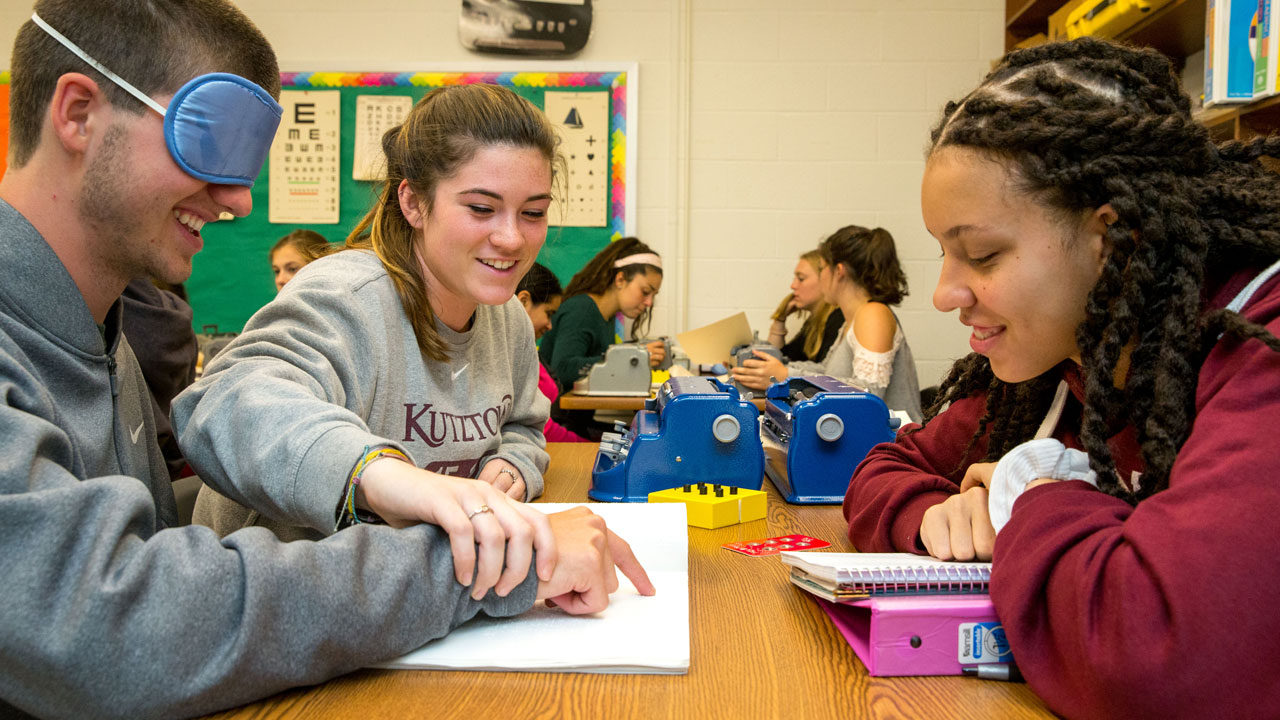
Special Education
Special Education: Visual Impairment
Bachelor of Science in Education, Teacher Certification
Play an important role in students’ and families’ lives as a teacher of the visually impaired. You will learn how to help students – who otherwise may struggle with academic performance – build the necessary skills and find adaptations that enable them to have the richest possible educational experience.
Specializing in visual impairment
Teachers of the visually impaired receive specialized training to support students who are blind or visually impaired. They are certified to provide vision support from birth to age 21. This is an instructional position – not a vision therapist or medical provider.
Such teachers have the flexibility to provide instruction either in a small classroom or in a 1:1 individualized setting. They learn Braille and how to use specialized technology that supports students with visual impairments.
What makes Kutztown University’s program unique
KU is one of only six institutions in the U.S. to offer a program focused on preparing teachers of the visually impaired at the undergraduate level, and the only one at a state university in Pennsylvania.
Employment facts
- 100% job placement for 2021 graduates
- More than 75% of teachers at Overbrook School for the Blind graduated from KU
- More than 60% of teachers at Maryland School for the Blind graduated from KU
As a special education major pursuing a B.S. in Education/Visual Impairment, you will be part of an extraordinary network of students and faculty who make this program outstanding among others of its kind.
KU students have presented research studies at state and national conferences across the U.S., served as representatives on national boards, and even become supervisors themselves.
The thing I liked most about the program was the hands-on experience with real students. This program made me feel prepared for student teaching, as well as in the field, by having comprehension knowledge of different eye conditions, and how to serve students to their individual needs. Every student is different and this was stressed throughout my entire time at the program.
Kenady O'Neil, 2021 graduateOur dedicated Vision Lab includes the following equipment:
- Braille Embosser
- BrailleNote Touch note taker
- 15 Perkins Brailler writers
- Vision Simulation Goggles
- Freedom Scientific wireless Braille display
- An iPad that features apps used in the field, such as KNFB Reader and CVI applications
- Various magnifiers from MaxiAids
Dual certification opportunity
Students can choose to pursue a single certification in visual impairment or dual certification with elementary education. The program ensures all elementary certification requirements are met for students enrolled in the dual certification program. Field experiences are provided and teacher candidates will experience them in both elementary education and visual impairment settings.
For more information, please email Dr. Nicole Johnson or call 610-683-4297.
Student Learning Outcomes






